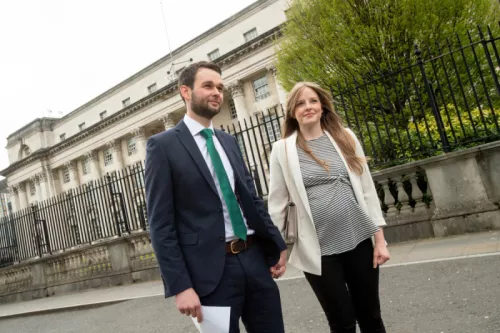In a surprise turn of events, it has emerged this week that Gareth Lee, who sued Ashers bakery, has lodged papers to take his case to the European Court of Human Rights.
Mr Lee ordered a cake with the slogan ‘support gay marriage’ from a bakery owned by a Christian family in 2014. The bakery initially accepted and then declined the order to make the cake. Mr Lee, backed by the Equality Commission in Northern Ireland, sued the bakery for damages for alleged discrimination on the grounds of his sexual orientation, political opinion and the religious beliefs of the bakery owners. Mr Lee won his case at first instance at Belfast County Court on all three grounds in 2015. However, three years later on 10 October 2018 five Supreme Court judges unanimously agreed that there had been no discrimination on any of the alleged grounds.
Mr Lee’s latest bid to take his case to the ECHR takes the case into new territory. The key principles will remain, alleged discrimination on the basis of sexual orientation, political opinion and religious beliefs. However, the baking company will no longer be the defendant and the Equality Commission for Northern Ireland will also no longer be involved as a key party to the case. Instead, the case will be against the UK government for an alleged failure to protect Mr Lee from discrimination. The UK is a state party to the ECHR, a fact which, incidentally, will not change when the UK leaves the European Union.
Mr Lee’s solicitors believe that the Supreme Court failed to give appropriate weight to the ECHR.
Mr Lee has said: “I’d fight for the rights of business owners to be able to hold their own religious beliefs. I have my own beliefs. But that’s not what my case has ever been about. This is about limited companies being somehow able to pick and choose which customers they will serve. It’s such a dangerous precedent.”
His solicitor Ciaran Moynagh said: “No legislation is perfect, but in equality law a hard line must be drawn to ensure no discrimination of any type exists. We’re concerned the ruling, in this case, allows any company, its shareholders or owners to hold religious or political views and those views trump the rights of its customers. The Supreme Court ruling blurred the line, creates legal uncertainty for all of us in Northern Ireland, and the ECHR is the appropriate place to clarify this issue.”
The comments from Mr Lee’s solicitor about the freedom of companies to hold or express religious or political views and how this relates to human rights are really interesting. This past month has seen many global brands turning rainbow for Pride month. As well as a naked marketing ploy, Pride is a form of political opinion which many companies seem eager to make known to their customers. The commercialisation of political views is not a new thing but it seems to be entering a stage in the era of what has been termed ‘woke capitalism’.
Companies have legal and corporate responsibilities to make sure their workers and customers are treated fairly and the environment is stewarded well. Business is an important tool in social change and even soft diplomacy. But a key question for the Court will be around any distinction between the personal views of company owners and the corporate values of that company, and whether within law there is freedom for companies and/or their owners to hold and express minority views or values. Maybe this is a question better answered by the market than the courts?
"“A win for everyone.”"
That’s the phrase we used to describe the Supreme Court verdict – a win for all protected minorities under equality legislation. Outside the Court Mr Lee said he “felt like a second-class citizen”. This was truly unfortunate and in contrast the comments of Lady Hale, who presided in the Preddy v Bull case and made clear that this judgment does not give license to discriminate against anyone based on any protected characteristic.
She said: “It is deeply humiliating, and an affront to human dignity, to deny someone a service because of that person’s race, gender, disability, sexual orientation or any of the other protected personal characteristics. But that is not what happened in this case and it does the project of equal treatment no favours to seek to extend it beyond its proper scope.”
The case was also a win for business owners, including those of faith. Lady Hale said: “It is, of course, the case that businesses offering services to the public are not entitled to discriminate on certain grounds. The bakery could not refuse to provide a cake – or any other of their products – to Mr Lee because he was a gay man or because he supported gay marriage. But that important fact does not amount to a justification for something completely different – obliging them to supply a cake iced with a message with which they profoundly disagreed. In my view, they would be entitled to refuse to do that whatever the message conveyed by the icing on the cake – support for living in sin, support for a particular political party, support for a particular religious denomination.”
We believe that the Supreme Court decision which stands today struck a careful balance between protecting everyone from discrimination and protecting everyone from compelled actions with which they profoundly disagree. We hope this new legal venture results in these protections remaining for everyone in the same way.



